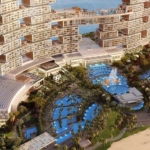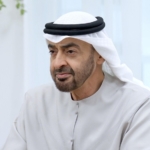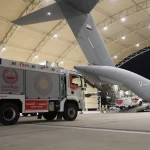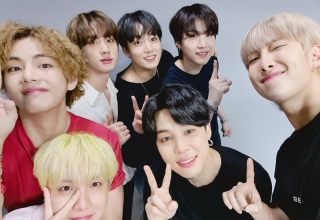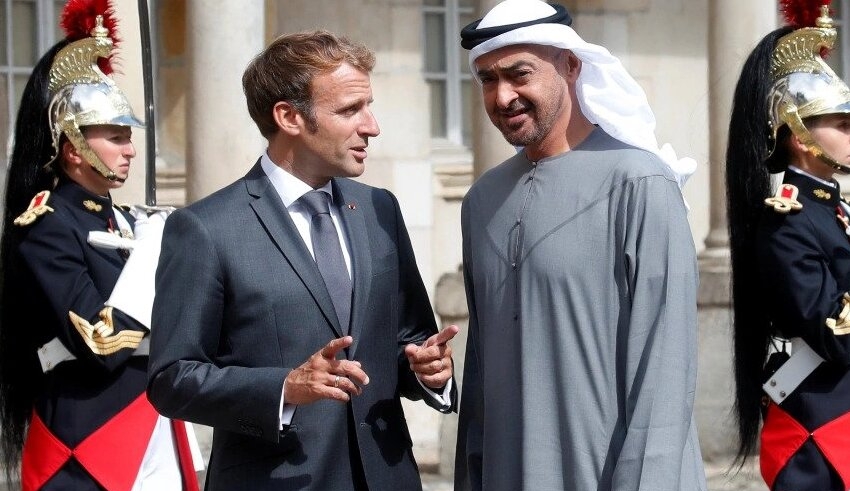
Midway through September, French President Emmanuel Macron welcomed Mohammed bin Zayed Al Nahyan (widely known as MBZ), the crown prince and de facto ruler of the United Arab Emirates, at the old Chateau de Fontainbleu near Paris, which was recently renovated with UAE financing. Despite occasional hiccups, Paris and Abu Dhabi have created a multifaceted strategic cooperation that covers political, security, and economic elements over the past number of years.
The intensification of French-Emirati cooperation shows a major trend in Europe-Gulf relations. Despite years of multilateral involvement between the European Union and the Gulf Cooperation Council (GCC), Gulf and European countries have mainly eschewed multilateral systems in favor of bilateral cooperation. As a result of both structural and circumstantial circumstances, bilateralism has tended to predominate in EU-GCC ties, with nations on both sides fighting to achieve their objectives.
The failure to negotiate a region-to-region free trade agreement (FTA) in 2008 inflicted a significant damage to the EU-GCC multilateral framework, as did the aftermath of the so-called Arab Spring in 2011 and the violence and disintegration that followed in the Middle East and North Africa (MENA) area. In a recently released edited volume titled “The European Union and the Gulf Cooperation Council: Towards a New Path,” we investigate these developments, as well as the many facets of EU-GCC ties and their future trajectory.
It is unsurprising that the UAE and France have taken steps to strengthen their ties, given that they share a similar stance on several problems in the Middle East and North Africa. In Libya, they have both backed Khalifa Hifter, the head of the Libyan National Army, over the Tripoli administration. Together with other external forces, both have contributed to the continuation of the civil conflict in the nation.
Additionally, they have had difficult ties with Turkey and its president, Recep Tayyip Erdoan. Last year, they participated in combined naval maneuvers with Greece and Cyprus in the eastern Mediterranean. Despite the fact that Turkey and the UAE have lately taken steps to reconcile some of their issues amid a developing regional détente, it remains to be seen if this is a lasting de-escalation or a short-term strategic calculation.
In addition, both Macron and MBZ distrust Islamist political groups throughout the area. In recent years, the UAE has been highly active in promoting interfaith dialogue projects to develop an image as a moderate and hospitable Muslim nation. In the aftermath of the Arab Spring, both Emirati and French authorities have tended to prioritize stability and the continuance of the status quo ante.
The UAE’s larger role
The past several years have been a time of intense diplomatic activity for the United Arab Emirates. Under the leadership of the UAE’s founding father Sheikh Zayed bin Sultan Al Nahyan, who reigned from 1971 to 2004, the country’s foreign policy was based on prudence, and the nascent nation regarded itself in the context of the Gulf, Arab, and Muslim worlds. This has changed in recent years under MBZ, particularly following the Arab Spring, as the government has become more aggressive and ambitious in the region and internationally.
In addition to strengthening its relations with France, the United Arab Emirates has also signed a comprehensive strategic agreement with China. The UAE’s mercantile grand plan of controlling access to vital maritime checkpoints in the Indian Ocean, the Horn of Africa, and the Red Sea, according to one observer, made Abu Dhabi a crucial partner for Beijing.
The Abraham Accords and the subsequent rapprochement with Israel were also beneficial to Emirati diplomacy. The agreement, which had been developed by President Donald Trump in his early days in office, was finalized in August 2020, providing Trump a “victory” before to the 2020 election. At the same time, the treaties underscored the UAE’s significance and indispensability to Joe Biden’s team, giving Abu Dhabi with the necessary platform to defuse possible issues with what would become the next government and assuring a much-desired F-35 fighter jet contract would go forward.
The U.S. response to the Arab Spring and subsequent events in the area have shown to GCC and Emirati officials in particular that the American commitment to the MENA region (and to their regimes) is not as unwavering as they had previously believed. This perspective has been strengthened by the recent messy retreat from Afghanistan and the administration’s ongoing hints that it wishes to reduce its exposure to regional instability. As the United States “pivots” to Asia, Gulf Cooperation Council (GCC) officials must increasingly envision and prepare for an unpredictable regional security environment and rely more on themselves.
Keep Reading
COP 28: Deepening ties
Bruno Le Maire, the French Minister of Finance and Economy, stated that the UAE can depend on help from the French government and its business sector to make Cop28 a tremendous success, not just for the UAE but also for the entire region and globe.
“I want to make it very clear to my Emirati friends that you can depend on France’s assistance,” he told top business leaders and investors on Monday at the Abu Dhabi Global Market.
“You can depend on the assistance of French enterprises, the support of the French President, and the help of the French government to make this Cop28 a huge success and a landmark in the battle against climate change.”
The UAE will host the next UN climate meeting, Cop28, beginning at the end of November.
The conference of heads of state, financial and industry executives, and representatives of civil society will assess the progress made since the majority of nations accepted the Paris Agreement in 2015.
The Paris meeting created the groundwork for limiting global warming to less than 2 degrees Celsius, and preferably no more than 1.5 degrees Celsius, over pre-industrial levels.
Mr. Le Maire stated that the UAE, the second-largest economy in the Arab world, had a “great duty” as host of the global climate summit to advance the climate agenda.
“France was in charge of one crucial Cop meeting at which the Paris Agreement was inked. This was viewed as a significant step forward in the fight against climate change,” he added.
“I would like for us all to construct a bridge between the Paris Cop and the Cop28, between France and the UAE, so that this Cop28 will be a tremendous success for the UAE, the entire region, and our planet.”
State news agency Wam said at the time that the UAE and France had formed a comprehensive strategic energy agreement that aims on boosting energy security, affordability, decarbonisation, and proactive climate action before to Cop28.
This month, Dr. Sultan Al Jaber, Cop28 President-elect and the United Arab Emirates’ special envoy on climate change, stated that the world is “playing catch-up” in its efforts to combat global warming and that countries must step up and work far quicker on agreed-upon targets.
“Despite the progress made by the world, we must be truthful with ourselves. Dr. Al Jaber, who is also the Minister of Industry and Advanced Technology for the UAE, stated as much at Abu Dhabi Sustainability Week.
Mr. Le Maire is on an official visit to the United Arab Emirates with the CEOs of leading French firms, including Total Energies, Airbus, and BNP Paribas, to meet investors and explore bilateral potential.
The visiting delegation also comprises Bpifrance, Société Générale, and 15 private equity businesses and fund managers.
The minister stated that France is eager to deepen its commercial connections with the UAE and is pushing for additional investment from the Emirates as it pursues its €10 billion ($10.9 billion) investment goal.
Mr. Le Maire told journalists on the sidelines of a UAE-France investors’ meeting in Abu Dhabi that the efforts of the French-Emirati Business Council, which was established last year to increase bilateral trade and strengthen economic ties in strategic sectors, will soon bear fruit, giving the investment drive a further boost.
“I believe the presence of so many top executives is a strong indication of [our] resolve to give the economic relationship between the UAE and France a new push,” he added.
“We want to take the chance of this new period to strengthen economic relationships,” he said, adding that the business council’s efforts to expand trade and economic links will yield “concrete results” in the near future.
In the decade leading up to the end of 2021, the value of commerce between the UAE and France increased to more than Dh256 billion ($70 billion), according to a report by Wam using statistics from the Federal Competitiveness and Statistics Centre.
Between 2012 and 2021, the value of non-oil commerce between the two nations climbed by 8 percent to more than Dh25.2 billion.
Wam stated that bilateral commerce increased by 28 percent annually in 2021, reaching Dh19.7 billion.
Following French President Emmanuel Macron’s visit to the UAE in May of last year and President Sheikh Mohamed’s visit to France in July, mutual cooperation between the two sides has expanded in recent years.
The UAE-France Business Council was launched under the combined leadership of Dr. Al Jaber, managing director and group chief executive of Adnoc and chairman of Masdar, and Patrick Pouyanne, chairman and chief executive of TotalEnergies in France.
The council is comprised of 18 senior executives interested in boosting economic links between the two nations.
It had its first plenary session on Monday and established the basis for a comprehensive strategy to strengthen economic connections by expediting programmes with an initial emphasis on renewable energy and climate action, transport and logistics, manufacturing, technology, and bilateral investments.
With their French counterparts, Emirati enterprises have already inked major investment and cooperation agreements.
Adnoc and TotalEnergies inked a strategic cooperation agreement last year to investigate investment possibilities across the entire value chain and collaborate on gas expansion, carbon capture and storage, trading, and product delivery.
Mubadala Capital, the asset management unit of Mubadala, launched a private equity collaboration with the French private investment firm Ardian last month.
Under the terms of the deal, Ardian will invest in a high-quality portfolio of private equity assets managed by Mubadala Capital. It will also make a main investment in private equity funds managed by Mubadala Capital.
Mubadala struck an agreement with the French public investment bank Bpifrance in 2021 to increase their collaboration by an extra €4 billion to be spent over a ten-year period.
Under the terms of the agreement, each side would contribute €2 billion to the French Emirati Fund (FEF) Partnership and the Innovation Partnership, Mubadala announced at the time.
The second agreement between Mubadala and the French Ministry of Economy permits the Abu Dhabi government to invest up to €1.4 billion in French funds or funds having significant exposure to the French economy.
Abu Dhabi’s sovereign investment arm is eager to extend its investment links in order to “provide value,” according to Waleed Al Muhairi, Mubadala’s deputy group chief executive.
“Our willingness to collaborate with French firms is as strong as ever,” he added.
This conviction is supported by the strategic economic cooperation between France and the UAE, as well as our experience of effectively investing money on the French market.
Read| North Korea displays biggest number of nuclear missiles at midnight parade
